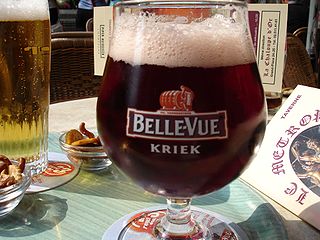
Kriek lambic is a style of Belgian beer, made by fermenting lambic with sour Morello cherries. Traditionally "Schaarbeekse krieken" from the area around Brussels are used. As the Schaarbeek type cherries have become more difficult to find, some brewers have replaced these with other varieties of sour cherries, sometimes imported.

Rodenbach is a brewery in Roeselare, Belgium, now owned by Palm Breweries. It is noted for its barrel-aged sour beers in the Flemish red style.

Alken-Maes is a Belgian brewery created out of the 1988 merger of two small breweries, Maes located at Kontich-Waarloos and Cristal-Alken located at Alken. It was bought by Scottish & Newcastle in 2000, who were taken over by Carlsberg and Heineken in 2007.

Duvel Moortgat Brewery is a Flemish family-controlled brewery founded in 1871 in Antwerp Province, Belgium. Its strong golden pale ale, Duvel, is exported to more than forty countries. Duvel is Brabantian, Ghent and Antwerp dialect for devil, the standard Dutch word being duivel. Other popular beers include Maredsous and Vedett.
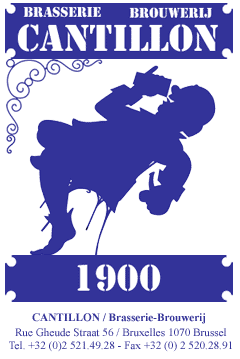
Brasserie-Brouwerij Cantillon is a small Belgian traditional family brewery based in Anderlecht, Brussels. Cantillon was founded in 1900 and exclusively brews lambic beers.

Westmalle Brewery is a Trappist brewery in the Westmalle Abbey, Belgium. It produces three beers, designated as Trappist beer by the International Trappist Association. Westmalle Tripel is credited with being the first golden strong pale ale to use the term Tripel.

Beer in Belgium includes pale ales, lambics, Flemish red ales, sour brown ales, strong ales and stouts. In 2018, there were 304 breweries in Belgium, including international companies, such as AB InBev, and traditional breweries, such as Trappist monasteries. On average, Belgians drink 68 litres of beer each year, down from around 200 each year in 1900. Most beers are bought or served in bottles, rather than cans, and almost every beer has its own branded, sometimes uniquely shaped, glass. In 2016, UNESCO inscribed Belgian beer culture on their list of the intangible cultural heritage of humanity.

Palm Breweries is a brewery company. It owns several different Belgian breweries. Total production was 1,700,000 hl of beer in 2004. The brewery was a member of the Belgian Family Brewers society until 2016.

De Koningshoeven Brewery (Brouwerij de Koningshoeven) is a Dutch Trappist brewery founded in 1884 within the walls of Koningshoeven Abbey in Berkel-Enschot (near Tilburg).

Brewery Ommegang is a brewery located near Cooperstown, New York, United States, that specializes in Belgian-style ales.
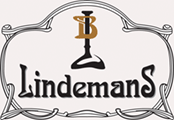
Lindemans Brewery is a Belgian family brewery based in Vlezenbeek, a small town in Flemish Brabant, southwestern Brussels. It produces lambics, a style of Belgian ale that uses raw wheat and wild yeast.
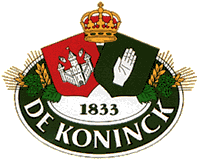
De Koninck Brewery (Brouwerij De Koninck) is a Belgian brewery founded in 1833 and based in Antwerp. The glass in which De Koninck's flagship beer is served is called a bolleke, although this term is most colloquially used to refer to a glass filled with the beer itself and is the way the beer is ordered in bars.

Oud Beersel is a Belgian lambic brewery. It is a member of HORAL, whose main event is Toer De Geuze every two years.

De Dolle Brouwers is a Belgian brewery, based in Esen in the province of West Flanders.
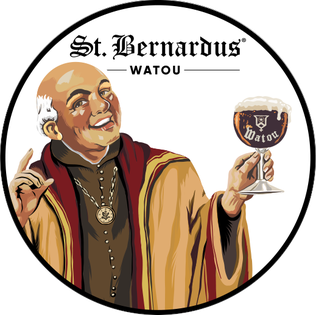
St. Bernardus is a brewery in Watou, Belgium.

Alvinne is a small brewery in the hamlet of Moen near the Belgian city of Zwevegem, founded in 2002.
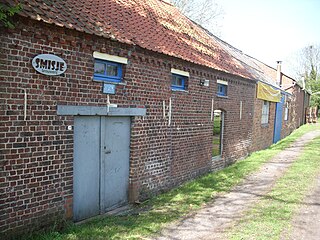
The Smisje Brewery, with a tiny production of only 200 hectoliters per year, is one of the smallest existing Belgian craft breweries. Begun in 1995 by former printer and homebrewer Johan Brandt, it was originally titled "De Regenboog", the same name as his earlier printing business. Brandt is also a bee-keeper, which accounts for the prominent use of honey in some of the brewery's offerings, including its first commercial beer, which was named 't Smisje or "the little blacksmith" to reflect the hand-crafted nature of the product as well as a local landmark blacksmith's house near the brewery's original location.

Huyghe Brewery is a brewery founded in 1906 by Leon Huyghe in the city of Melle in East Flanders, Belgium. Its flagship beer is Delirium Tremens, a golden ale.

Het Anker Brewery is a Flemish brewery in Mechelen, founded in 1471 by a community of Beguines. In 1872, the brewery was acquired by Louis Van Breedam, who renamed it Het Anker in 1904. Expanding its assortment from lager to ale, it began producing "Emperor beer" after World War II. In 1960, it renamed it "Gouden Carolus" after Charles V, Holy Roman Emperor. They opened a brasserie and a hotel, and in 2010 began producing a single malt whisky, distilled from the Gouden Carolus Tripel.

Bosteels Brewery is a brewery in Buggenhout, Belgium. The brewery was founded in 1791 and was owned and operated by the same family. Bosteels brew three beers: Tripel Karmeliet, DeuS, and Pauwel Kwak. In 2019 a new beer was added for the first time in 17 years; Monte Cristo.
























